To experience the predicament that almost killed two stranded German aviators in 1932, a modern-day adventurer sets off solo into the Kimberley with only minimal supplies.
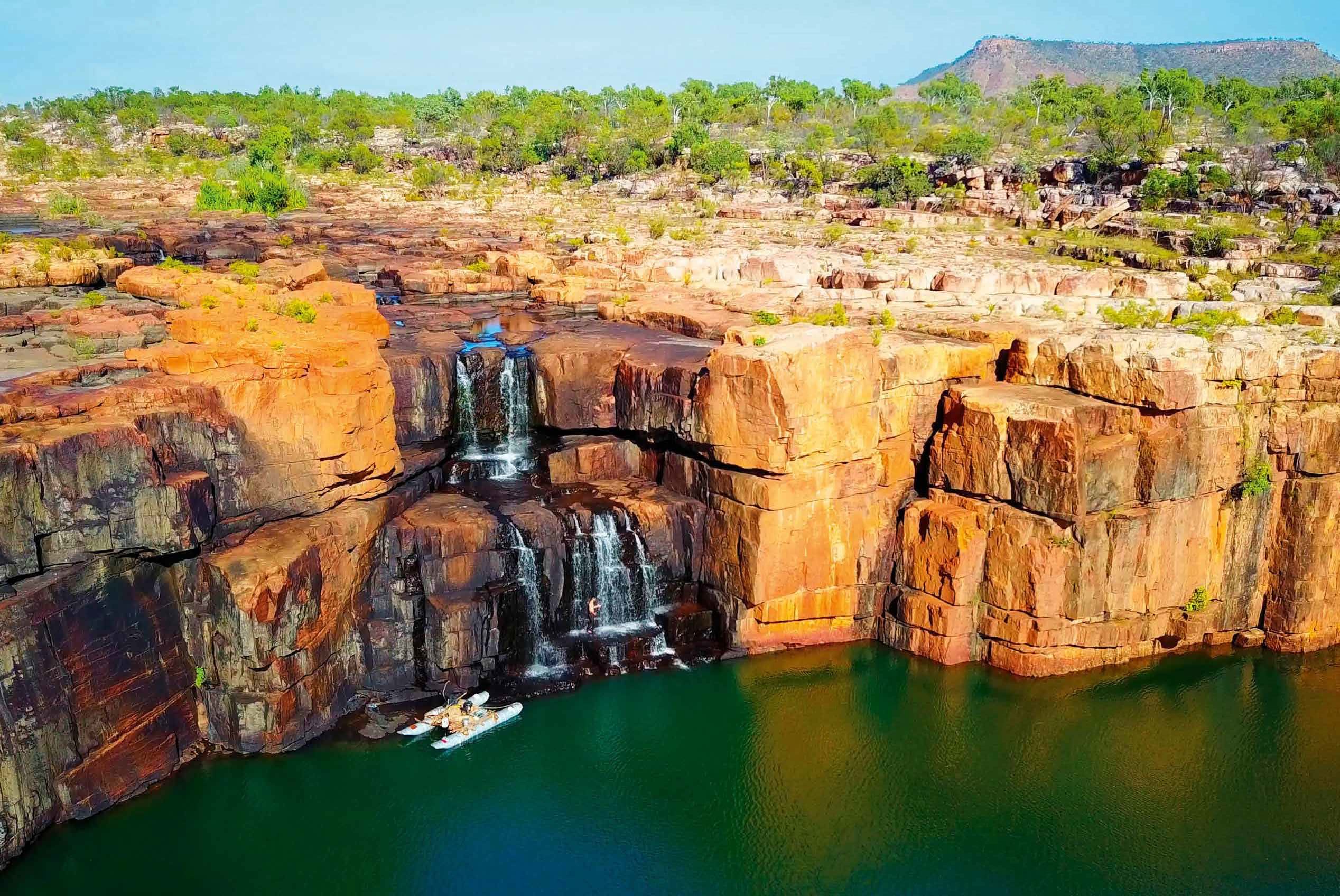
“ACROC’S GONNA rip you straight off that raft, mate!” These were the not-so-encouraging words of a local in Wyndham, 2200km north-east of Perth, who farewelled me as I prepared my ves-sel for departure into the remote Kimberley. It was nerve-racking setting off on this four-week solo expedition into the West Australian wilderness, to place myself in the same situation as two German aviators – Hans Bertram and Adolf Klausmann – who had been stranded in the Kimberley in 1932. I wanted to see if I could survive my way out of their historic predicament, with only the materials that had been available to them 85 years earlier.
After running out of fuel on their flight from Europe to Australia, these pioneering aviators made a raft using one of their seaplane floats and attempted to sail back to civilisation. After five weeks of hell – lost, with little food and water – they’d given up, but were rescued, on the brink of death, by local Balanggarra people.
I wondered if they might have had more success if they’d used two floats, instead of one, and roped them together to make a catamaran. To test this idea, I welded up mock seaplane floats out of 44-gallon (200L) drums, with bush logs lashed across the top, and attached an outboard engine so I could motor around to the remote bay where the seaplane had been stranded, near Cape Bernier.
I didn’t want to diminish what Bertram and Klausmann had achieved in 1932. They did an excellent job with their knowledge at the time. But I had a distinct advantage as a former military survival instructor with NORFORCE, an Australian Army Reserve unit mostly made up of Aboriginal people that patrols the Top End. I’d also been a military pilot with extensive survival training and tested my skills on many private expeditions.
This story is from the July-August 2018 edition of Australian Geographic Magazine.
Start your 7-day Magzter GOLD free trial to access thousands of curated premium stories, and 9,000+ magazines and newspapers.
Already a subscriber ? Sign In
This story is from the July-August 2018 edition of Australian Geographic Magazine.
Start your 7-day Magzter GOLD free trial to access thousands of curated premium stories, and 9,000+ magazines and newspapers.
Already a subscriber? Sign In
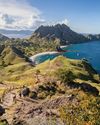
SULAWESI SENSATIONS
There are worlds within worlds and marvels untold waiting to be experienced on Indonesia's remote islands.
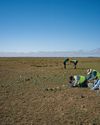
SEARCHING FOR AUSSIE DINOSAURS
Our understanding of where to find ancient life in Australia has been turned on its head by a new appreciation of the country's geology. Now the world is looking to our vast outback as the latest hotspot to locate fossils.
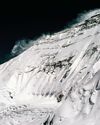
THE HARDEST NIGHT
The first Australian ascent of Mt Everest in 1984 is one of the great feats of mountaineering. Climbed by a small team semi-alpine style, with no bottled oxygen, via the Great (Norton) Couloir, it remains unrepeated 40 years later.
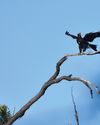
WEDGE-TAILED WONDER
The chance discovery of an eagle nest leads to an extended vigil observing normally hidden behaviours of one of nature's supreme winged marvels.
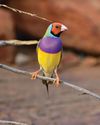
BURDENED BY BEAUTY
Northern Australia's Gouldian finch survives in huge numbers in cages around the world, but its wild population continues to struggle.
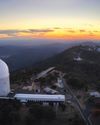
A TELESCOPE FOR A GOLDEN AGE
After a stellar 50 years as one of the country's major scientific assets, the AAT continues to play a major role in keeping Australian astronomy on the world stage.
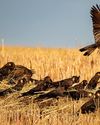
COCKY WHISPERING AT COOMALLO CREEK
This patch of remnant bush on the edge of the West Australian wheatbelt is a place loved by one of Australia's rarest bird species and the man who has studied the site for more than 50 years.

A PIONEERING PAIR
Louisa Atkinson and her mother, Charlotte, were among Australia's earliest authors, and pioneers in women's rights.
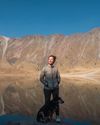
THE LONGEST WALK
Lucy Barnard is walking from Argentina to Alaska -the length of the Americas - on an extraordinary journey of endurance and adventure.
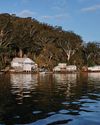
SECLUDED, BUT NOT ALONE
In an era of heightened social isolation, where many of us lead lonely lives, Dangar Island offers the chance to be part of a supportive, connected community.